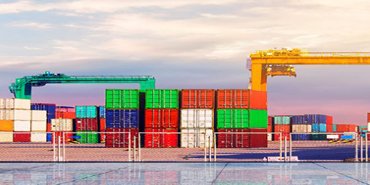


Logistics Service Investment
At the height of the pandemic, the vulnerability of logistics and supply chains was keenly felt across the world. Traditionally, logistics was considered by many to be an allegedly commoditized function—companies were often unwilling to invest in their own logistics assets, rather outsourcing the function and trying to minimize the share of transportation and warehousing costs in their income statements.
However, as soon as consumers saw empty supermarket shelves, or, in the case of the ireland, closed gas stations, the importance of the logistics industry was drawn to the world’s attention. And businesses increasingly re-evaluated their perception of logistics. According to a survey of managers from global companies in 18 countries, 83 percent of respondents said they had become more aware of the risks associated with transport blockades, production shutdowns, or raw material shortages than before the pandemic.
This shift in awareness resulted in an inflow of capital to the sector at an unprecedented level in 2021. However, the number of funding rounds for logistics startups remained relatively stable—growing only slightly compared to 2020—suggesting that funding rounds are becoming larger on average, according to our analysis.
Investors in the logistics industry have become more aware of the challenges, and the corresponding opportunities for growth, and are investing in new ventures with larger funding rounds. As Europe cautiously emerges from the pandemic and outlines its roadmap to economic recovery, the transportation and logistics industry looks set to contribute significantly to that process. We’ve seen the transportation industry face many challenges, regarding restrictions surrounding the movement of goods – especially considering imports and exports or, in some cases, regional transfers of items. However, new innovative thinking is optimising the transportation and logistics industry to adapt alongside recent trends and the latest investments in transport infrastructure.
Logistics: Growing investments
Despite the economic disruption caused by COVID-19, the logistics industry has proved especially resilient as a result of two major structural trends, namely urbanisation and digitisation of the economy. According to a study by PwC, Urban areas are likely to receive the majority of future investments, as investors “follow the money” and focus on faster growing cities and megacities. Governments may need to offer incentives to ensure that rural areas remain connected when it comes to transportation routes. Urbanisation and digitalisation will impact logistics service providers looking to make strategic decisions about entering new markets. One of which will be to ensure that both public and private investors give their support and comply with the financial aspects of expanding delivery regions.
Investments in the transport sector creates opportunities for growth, generates jobs, facilitates trade and realises economies of scale Investing in logistical services can have a positive economic spillover effect. For example, transportation can produce more employment opportunities per dollar value than that of investing in new road construction.
Evidence suggests that investing in smart-delivery fleet management can also improve collaboration between the stakeholders. And slot-based/appointment-based scheduling can significantly reduce fuel consumption and enhance trip efficiency. Here, a positive spillover effect is that investments in logistical services contribute towards reduced traffic congestion as a result of smarter delivery route planning. AI has been introduced by many logistic service providers to incorporate this. It has been used to optimise routes, minimise fuel consumption, and limit travel time. In terms of economic growth generation, investors are pouring capital into the infrastructure of the transport and logistics industry, due to the tremendous increase in freight transportation across Europe. This facilitates trade and economies of scale.
Why invest in logistics services?
Patterns of freight traffic have always been driven by consumer and business demand for goods and services, or by secondary demand (e.g. for electricity). The challenges of the past highlight fragmentation in logistics and the need for thoughtful investment in new technologies and infrastructure, alongside global changes in the nature of trade. It also highlights the importance of onward connectivity from ports, via roads, rail and inland shipping. This is why investing in intelligent delivery could be key to increasing integration between global trade and supply chains, as well as ensuring better use of national transport assets.
Growing your profits by investing in logistics services
With global economic integration, a multitude of countries – across continents – are expanding their trade horizons. For the logistics industry, and its investors, this means turning greater profits. However, developing and expanding trade routes will require transport infrastructure capacity to meet freight logistics reliability, effectiveness and resilience for investments to yield optimal returns and profitability.
WE COVERED
2558+
Internationally
WE HANDLED
2000+
Investment